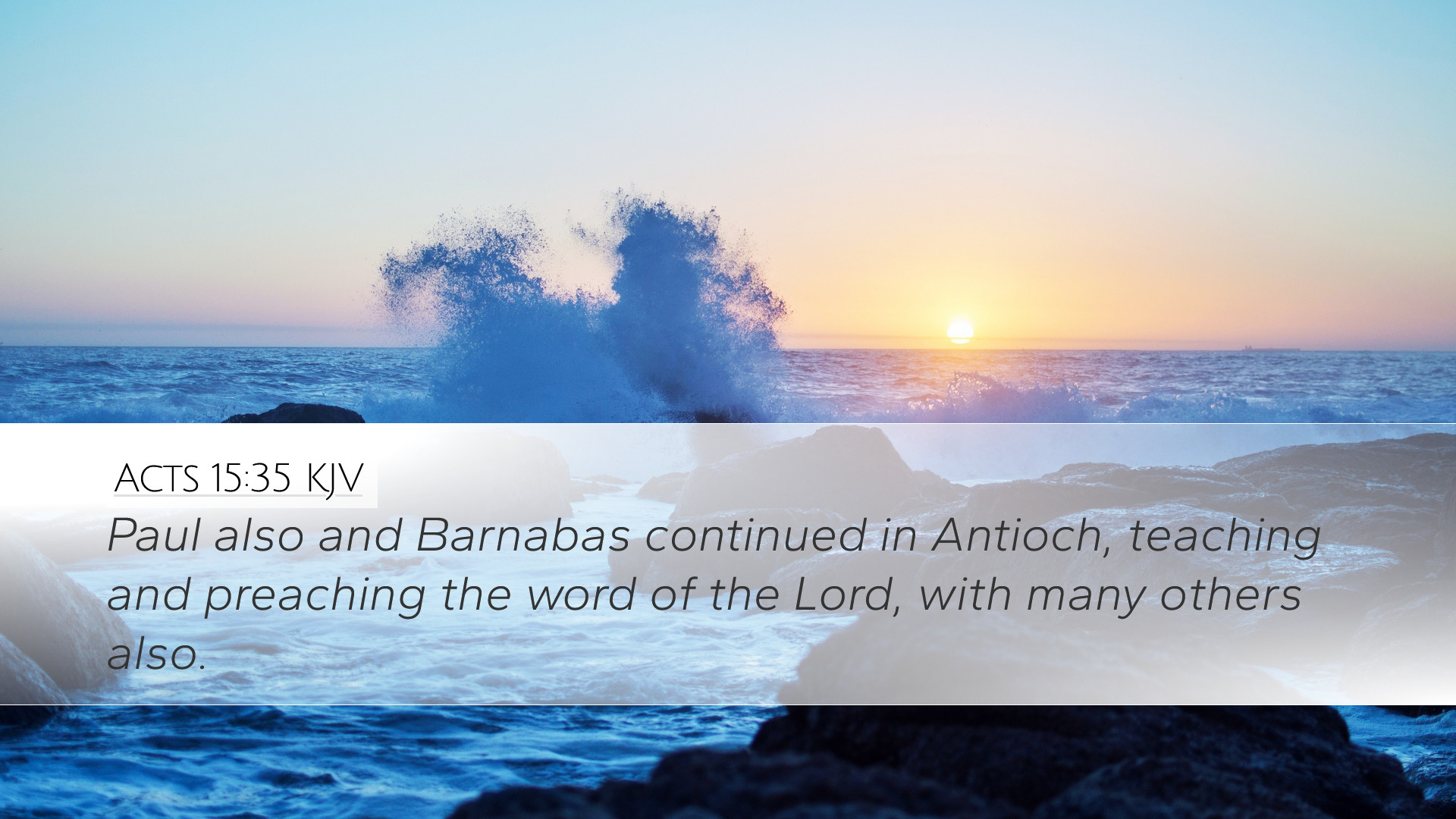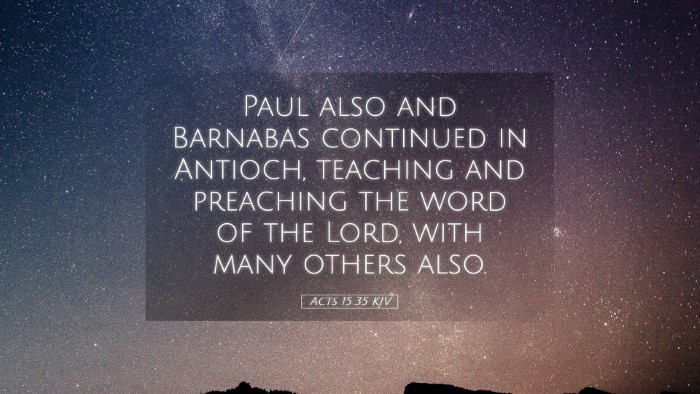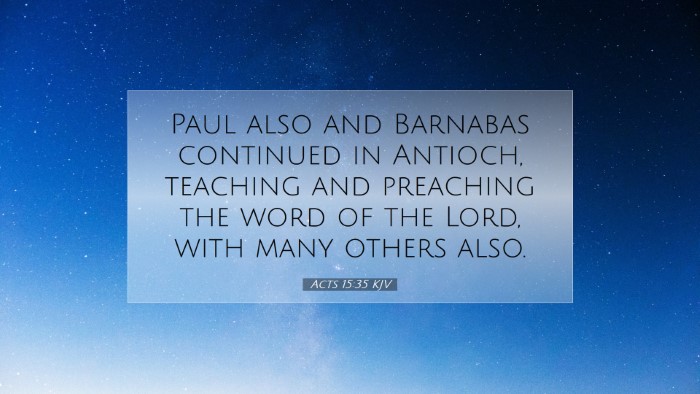Commentary on Acts 15:35
Text of the Verse: "But Paul and Barnabas stayed in Antioch, teaching and preaching the word of the Lord, with many others also."
Introduction
This passage marks a significant moment in the early church where Paul and Barnabas choose to remain in Antioch rather than ignore their pivotal role in nurturing the faith of newly converted believers. The commentary examines the implications of their decision, characterizing their commitment to teaching and preaching, as well as the profound impact of their ministry.
Exposition of the Verse
Acts 15:35 serves as a bridge illustrating the transition from the Jerusalem Council's decisions to the broader evangelical mission of the church.
Context of Acts 15
This chapter recounts the Jerusalem Council, which addressed critical issues regarding the inclusion of Gentiles in the Christian faith and the necessity of the Mosaic Law. Amidst the burgeoning conflict over these issues, Paul and Barnabas emerge as stalwart defenders of the doctrine of grace.
The Decision to Stay in Antioch
The decision of Paul and Barnabas to remain in Antioch underscores the importance of consistent teaching and fellowship within the community of faith.
- Commitment to Teaching: The emphasis on teaching the word of the Lord highlights the educational mission of the church. Both Paul and Barnabas recognized the need to ground believers in the truths of Scripture.
- Preaching in Community: Their choice to stay reflects a model of community engagement that is vital for spiritual growth. Teaching should not be a solitary effort but a communal one, fostering interaction and shared insights among believers.
Theological Implications
Paul and Barnabas’ dedication to their roles presents key theological insights relevant for pastoral practice and theological studies.
- Evangelism and Discipleship: The dual elements of teaching and preaching underscore the vital interplay between evangelism and discipleship in the faith. They highlight that merely bringing people into the fold isn’t enough; ongoing discipleship and teaching must accompany conversion.
- Community Formation: The passage illustrates the importance of community in the early church. Effective ministry occurs within the communal context, where preaching and teaching serve to unify and strengthen the body of Christ.
Insights from Public Domain Commentaries
Matthew Henry
Henry observes that this verse showcases the steadfastness of Paul and Barnabas amidst the challenges they faced. He emphasizes the role of leaders in caring for the flock and the imperative to continually nourish their spiritual life. The dedication to teaching and preaching reflects a commitment to sound doctrine and the propagation of faith.
Albert Barnes
Barnes highlights the significance of their teaching presence in Antioch as a model of how local churches should function. He notes that both Paul and Barnabas remained engaged in the work of the church, emphasizing the need for active ministry in every locality. This commitment to the word of God serves as the foundation upon which church growth and maturity are built.
Adam Clarke
Clarke’s commentary delves into the practical application of this verse for contemporary ministry, urging pastors and church leaders to prioritize teaching and preaching as central aspects of their roles. He states that the combination of both is essential to meet the spiritual needs of a diverse congregation and encourages believers to engage deeply with Scripture.
Practical Applications
- For Pastors: This passage serves as a reminder to engage consistently in teaching and preaching, recognizing the impact of their ministry on the church’s spiritual health.
- For Students: Understanding the context and implications of Acts 15:35 can deepen theological knowledge and equip future leaders with a model of ministry that values both evangelism and discipleship.
- For Theologians: This verse invites critical reflection on the nature of early church practices, offering insights into the dynamics of teaching and community building in the context of faith.
- For Bible Scholars: It underscores the necessity of analyzing the narrative structure and theological themes of Acts, urging scholars to consider their implications for the understanding of early Christian mission.
Conclusion
Acts 15:35 encapsulates a pivotal moment in the life of the early church, presenting a model for teaching and preaching that is rooted in community and commitment to the Gospel. The insights drawn from the commentaries of Henry, Barnes, and Clarke emphasize the significance of this ministry in the ongoing growth and maturity of believers. For all who engage with this passage, it serves as a call to be active participants in the mission of the church, continually teaching and preaching the word of the Lord.


